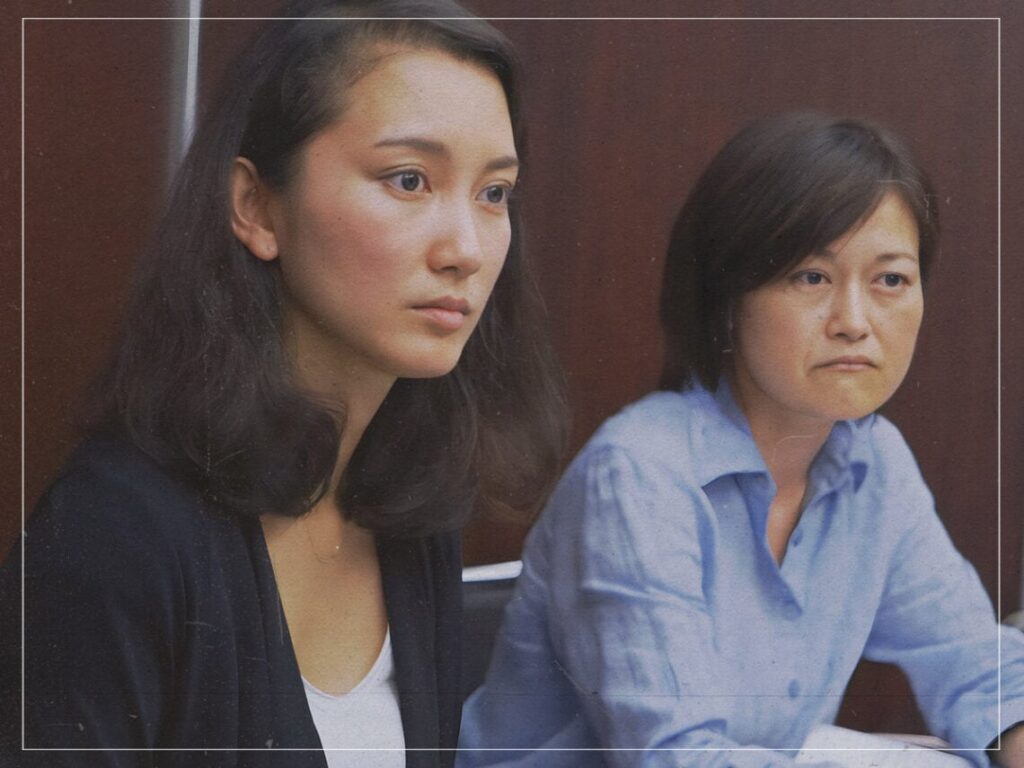‘Black Box Diaries’ movie review: an exposé of sexual assaults in Japan
 Posted On
Posted On
(Credits: Far Out / BFI Southbank)
Shiori Ito – ‘Black Box Diaries’
In 2017, young journalist Shiori Ito accused an older, high-profile TV newsman of raping her two years earlier. Her documentary, Black Box Diaries, is a highly personal account of the painful, years-long process of dealing with the Japanese justice system, its reluctance to address sexual assault, and its openly preferential treatment of dignitaries. Ito had been put off by police when she first reported the assault, told that the crime was virtually impossible to prosecute.
She defensively began keeping painstaking notes and recording conversations with police as she worked her way through the legal labyrinth of Japanese law. In 2017, while still trying to prosecute her assailant, Ito published Black Box, an account of her efforts thus far and an exposé of Japan’s inadequacies in dealing with sexual assault. The term ‘black box’ is Ito’s description of the treatment of cases like hers, which are hidden rather than addressed. The book caused a stir and contributed to Japan’s version of the #MeToo movement. Black Box Diaries, an English-language documentary written and directed by Shiori Ito herself, is an adaptation of that book, expanded to include events that took place after the book’s publication.
The documentary has a homemade feel, much of it being recorded on Ito’s cell phone, but it is well-organised and edited for clarity. It opens with Ito describing her preparations for the criminal case before scanning through a series of discouraging items: a voice message from her sister advising Ito not to proceed with the case because she will be stigmatised; the voice of her lawyer warning that the available evidence of the assault will likely be found insufficient. These are contrasted with video from a security camera that shows Ito’s virtual abduction from a taxicab, apparently drugged, and voice-over evidence from the cab driver.
The contrast between the alarming footage and the warnings not to proceed sums up the situation Ito finds herself in. Ito has said that, as a journalist, she wanted to present an unbiased account, but finally realised that was all but impossible, and simply told her story accurately but from her own perspective and without hiding her feelings and intentions. What comes across most harshly is the way in which being a victim of sexual assault is regarded as shameful in Japan, preventing most rape victims from reporting the crime.
The film follows Ito’s actions as she prepares for a criminal trial, consulting with her attorney and explaining the details of Japanese criminal law. The appraisal of the Japanese justice system is not overbearing; it becomes apparent through the hurdles Ito has to deal with. She reluctantly agrees to go public and speak to the media about the case when she first makes the accusation, explaining that the case would not be addressed otherwise due to “current law” and the accused being a “prominent figure”. The film captures the tension between Ito’s determination and the expectation in Japan for rape victims to hide their situation as if ashamed. The stress of being under public scrutiny and of having her future career threatened comes across very well.
A few small incidents are used to illustrate the well-entrenched attitudes Ito is up against. We are shown glimpses of contemptuous comments thrown at her, in person and online, as a result of her carrying on with the court case, but also, in a rare bright moment, the heartening encounter with a group of older women who declare their support for her efforts. When the police even advised Ito to “let it go”, Ito began recording all conversations with the police and found some of their comments useful as evidence.
In a striking scene, Ito phones a police officer who has been helpful to her, asking his permission to use recordings of his advice; in a moment of intense tone-deafness, he jokingly agrees to give permission if Ito will marry him. Ito laughs along but gives the camera a look of horror. “To me, he was a hero,” she later explained, shocked by the discrepancy between the officer’s understanding and support and his insensitivity to her situation. She often uses humour to present the harsher reactions to her case, but the filmmaker has acknowledged that at the time, the personal attacks caused her considerable distress and forced her to completely avoid social media for an extended period.
Whether or not the outcome was a victory could be debated, especially given the peculiarities of Japanese law on this subject, and the film avoids forcing a sense of closure. Ito has indicated she is satisfied despite considerable room for improvement. The documentary presents both the disappointing aspects of the legal decisions and the more encouraging ones.
In an interview following the film’s release, Ito noted that her book, and this film, have had an unexpected influence on sexual assault law in her homeland. The end of the case “was not the end,” she comments, as “It was not my only goal to win the case; I wanted also to change how such cases are dealt with.” As a result of Ito’s work, attitudes are changing; “I start seeing other women speaking up,” she reports, and more significantly, “the stigma of rape is getting less, so it’s easier to reach out for help.” One obstacle has yet to be overcome: the film is, as of now, not being shown in Japan.
[embedded content]
Related Topics


